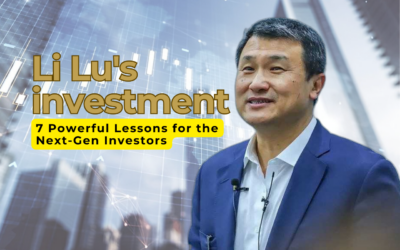In the fast-paced world we live in, achieving financial fitness is more crucial than ever. The ability to make smart money moves not only ensures stability in the present but lays the foundation for a secure future. Whether you’re just starting your financial journey or looking to enhance your current strategies, here are some key steps to help you achieve lasting financial well-being.
1. Craft a Comprehensive Budget :
Crafting a comprehensive budget is akin to creating a financial roadmap for a secure future. It involves a meticulous examination of income sources and a clear categorization of expenses, distinguishing between fixed and variable costs. By detailing housing, utilities, and debt payments, a budget sheds light on essential financial obligations. Additionally, allocating funds for groceries, entertainment, and savings goals allows for a balanced approach. Regularly tracking and adjusting the budget ensures adaptability to life changes, fostering a disciplined and proactive approach to personal finances. Ultimately, a well-crafted budget is a cornerstone in the journey towards financial stability and smart money management.
2. Build a Robust Emergency Fund :
Life is unpredictable, and having a financial safety net can make all the difference during challenging times. Strive to maintain a financial safety net by setting aside funds equivalent to three to six months’ worth of living expenses in a readily accessible account. This emergency fund acts as a cushion in the face of unexpected events, such as medical emergencies or sudden job loss.
Building a robust emergency fund is a financial cornerstone, providing a crucial safety net for unforeseen challenges. This fund, ideally covering three to six months’ worth of living expenses, serves as a shield during unexpected events like medical emergencies or job loss. By consistently setting aside funds, individuals create a financial cushion that allows them to navigate uncertainties with greater confidence. An emergency fund fosters peace of mind, offering a financial buffer that prevents setbacks from turning into crises. It represents a proactive step towards financial security, ensuring that sudden expenses don’t derail long-term goals. In essence, a robust emergency fund is a foundation for resilience and stability in the face of life’s uncertainties.
3. Tackle High-Interest Debt :
Debt can be a significant roadblock to financial fitness. Prioritize paying off high-interest debts, such as credit card balances, to reduce financial strain. Explore debt consolidation or refinancing options to lower interest rates and make your debt repayment journey more manageable.
4. Invest Strategically for the Future :
Harness the potential of investing as a potent strategy for long-term wealth accumulation. Enhance risk management by diversifying your investments across various asset classes. Start early to leverage the benefits of compounding returns, and regularly review and rebalance your portfolio to align with your financial goals.
5. Prioritize Retirement Planning :
Securing your retirement is a critical aspect of financial fitness. Contribute to retirement accounts like a 401(k) or IRA, and take advantage of employer-sponsored plans with matching contributions. Starting early and consistently contributing to these accounts will set you on a path to a comfortable retirement.
6. Ensure Adequate Insurance Coverage :
Ensuring the safety and well-being of yourself and your loved ones in the face of unforeseen circumstances is of utmost importance. Review and update your insurance coverage regularly, including health, life, and property insurance. Ensure that your coverage aligns with your current life circumstances and financial goals.
7. Continuous Financial Education :
Empowering yourself with knowledge is key to effective financial management. Stay informed about financial markets, investment options, and the latest trends. Attend workshops, read books, or consult with financial advisors to enhance your financial literacy and make informed decisions.
8. Real Estate Considerations :
For many, real estate represents a substantial investment. Consider homeownership as a long-term strategy, taking into account housing costs and potential appreciation in your chosen area. Be mindful of the financial implications and benefits of owning property.
9. Automate Savings for Consistency :
Consistency is key to financial fitness. Establish automated transfers to direct funds into your savings and investment accounts effortlessly. By automating your savings, you remove the temptation to spend impulsively and ensure that you are consistently building wealth over time.
10. Live Below Your Means :
Resist the urge to succumb to lifestyle inflation as your income increases. Living below your means allows you to save and invest the surplus, accelerating your journey toward financial freedom. Cultivate mindful spending habits to ensure your money aligns with your long-term goals.
11. Strategic Tax Planning :
Strategic tax planning is the proactive and deliberate process of organizing one’s financial affairs to minimize tax liability while remaining in compliance with tax laws. It involves making informed decisions about various financial aspects to optimize tax efficiency. Maximize your tax advantages by contributing to tax-advantaged accounts and taking advantage of available tax credits.
12. Regularly Review and Adjust :
Financial fitness is an ongoing process. Regularly review your financial goals and adjust your plan as needed. Be flexible and adaptable to changes in your personal or economic circumstances. A dynamic financial strategy ensures that you stay on track toward a secure future.
Conclusion :
In conclusion, achieving financial fitness requires a combination of strategic planning, disciplined saving, and continuous learning. By implementing these smart money moves, you can pave the way for a secure and prosperous future. Remember, the journey to financial well-being is unique to each individual, so tailor these strategies to align with your specific goals and aspirations.












